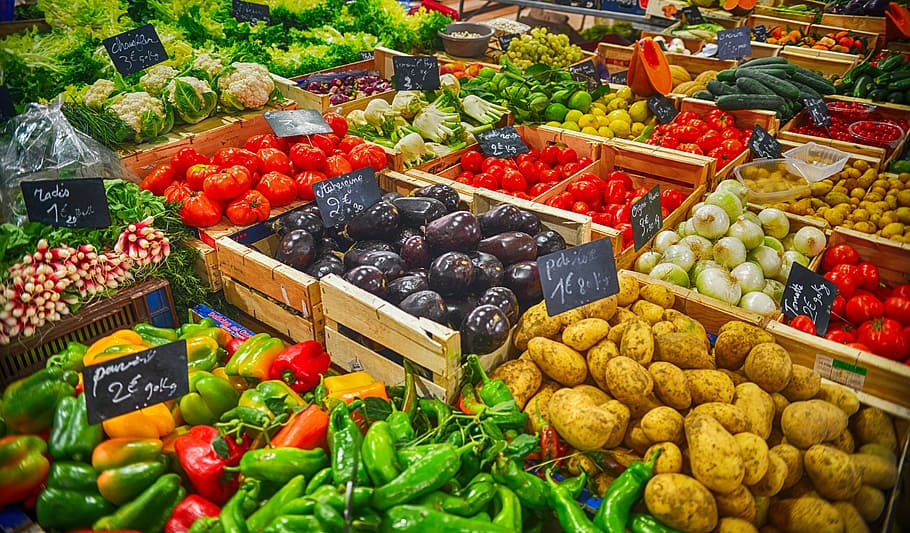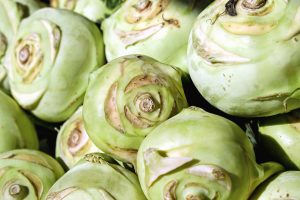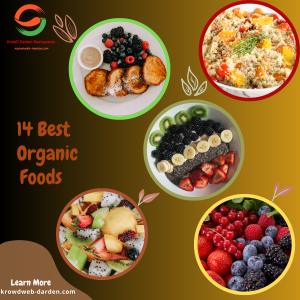What is Organic Food?
7 min read
Image credit: Google creative commons licenses
What is Organic Food?
Exploring the Essence of Organic Food: Benefits and Beyond
In a world where health-conscious choices are becoming increasingly important, the term “organic food” has gained substantial popularity. Organic food isn’t just a buzzword; it represents a philosophy that resonates with the desire for healthier, sustainable, and environmentally-friendly options. But what exactly is organic food? and why is it capturing the attention of consumers and experts alike?
Understanding Organic Food:
Organic food refers to produce grown, processed and handled following specific guidelines that prioritize using natural methods and materials. These methods avoid synthetic pesticides, genetically modified organisms (GMOs), and artificial additives.
Instead, organic farming relies on traditional techniques such as crop rotation, composting, and biological pest control to nurture the soil, enhance biodiversity, and promote the overall health of the ecosystem.
Benefits of Going Organic:
The allure of organic food lies not only in its commitment to environmental sustainability but also in the potential health benefits it offers. Research suggests that organic produce may contain higher levels of certain nutrients and antioxidants, which can contribute to improved health outcomes.
Additionally, by avoiding synthetic pesticides and chemicals, organic farming minimizes the risk of exposure to harmful residues, benefiting both consumers and the farmers who cultivate these crops.
Environmental Impact:

One of the defining features of organic food production is its emphasis on sustainability. Organic farming practices aim to reduce the negative impact on the environment by promoting soil fertility, conserving water, and minimizing pollution.
These practices also contribute to the preservation of biodiversity by creating habitats that support a variety of plants and animals. By opting for organic products, consumers actively support a more harmonious relationship between agriculture and nature.
Debunking Misconceptions:
While the benefits of organic food are evident, some misconceptions need to be addressed. It’s important to note that organic farming isn’t synonymous with “pesticide-free.” Organic farmers do use pesticides, but these are typically naturally-derived or non-synthetic substances that are less harmful to the environment and human health.
Additionally, the yield from organic farms might be slightly lower than conventional farms, leading to the perception that organic food is more expensive. However, this cost often reflects the true value of sustainable practices and the higher quality of the products.
Making Informed Choices:
As the popularity of organic food continues to grow, consumers need to make informed choices. Look for credible certifications, such as the USDA Organic seal, which ensures that the product meets strict organic standards.
While going fully organic might not be feasible for everyone due to various factors, gradually incorporating organic choices into your diet can still make a positive impact on your health and the environment.
In conclusion, organic food represents a holistic approach to nutrition, sustainability, and well-being. By embracing organic products, individuals contribute to a healthier planet while reaping the potential benefits of enhanced nutritional value.
As our awareness of the connection between what we consume and its impact on the world deepens, organic food stands as a testament to the positive change that can be achieved through conscious choices.
What Are the 10 Benefits of Organic Food?

“Harvesting Health: Unveiling 10 Remarkable Benefits of Organic Food”
In the realm of culinary and nutritional preferences, organic food has carved out a distinct niche. With an emphasis on natural cultivation and sustainable practices, organic food has become a symbol of healthier living. Delving into the array of benefits it offers, let’s explore ten compelling reasons why choosing organic food can be a game-changer for your well-being and the planet.
- Nutrient Richness: Organic foods are often found to contain higher levels of essential nutrients such as vitamins, minerals, and antioxidants. The absence of synthetic fertilizers prompts plants to develop more robust defense mechanisms, leading to enhanced nutritional profiles.
- Reduced Pesticide Exposure: One of the prime reasons individuals opt for organic food is the reduced exposure to harmful pesticides. Organic farming relies on natural pest control methods, minimizing the risk of consuming residues that could potentially impact human health.
- No GMOs: Organic food is inherently non-GMO (genetically modified organism). This means that the genetic makeup of organic crops remains untouched by genetic engineering, providing consumers with food that is more in tune with natural processes.
- Environmentally Friendly: Choosing organic supports environmentally friendly practices. Organic farming techniques conserve water, reduce soil erosion, and promote biodiversity. These practices contribute to healthier ecosystems and a more sustainable planet.
- Better Taste: Organic fruits and vegetables often boast a more vibrant and authentic taste. The absence of synthetic chemicals allows the true flavors of the produce to shine through, offering a delightful culinary experience.
- Heartier Meat and Dairy: Organic meat and dairy products are typically sourced from animals raised in more humane and healthier conditions. They are less likely to contain antibiotics or synthetic growth hormones, providing a cleaner source of animal protein.
- Antibiotic Resistance Prevention: Organic livestock farming avoids the use of antibiotics for growth promotion. This helps mitigate the issue of antibiotic resistance, a growing concern in conventional animal agriculture.
- Sustainable Farming: Organic farming practices focus on long-term sustainability. Crop rotation, composting, and reduced chemical use contribute to soil health, ensuring fertile land for future generations.
- Support for Local Economies: Choosing organic products often means supporting local farmers and businesses. This fosters a sense of community and encourages a more decentralized food production system.
- Ethical Considerations: Organic food production places a premium on ethical practices. Consumers who opt for organic are often aligned with values of environmental conservation, animal welfare, and healthier food options.
In a world where health and sustainability intertwine, organic food emerges as a beacon of conscious consumption. Its benefits extend far beyond the individual plate, reaching into the realm of global well-being.
By choosing organic, we not only nurture our bodies but also contribute to the preservation of the planet for generations to come.
Recent Posts
- Barangaroo Restaurants: Vibrant Restaurant Review
- Top 10 Best Sydney Restaurants
- Seasons 52: Exquisite Dining Experiences
- Darden Restaurants, Inc. American Multi-Brand Restaurant
- Cafe Rio: Mosaic of Exquisite Flavors Unleashed
What are the 10 Dangers of Organic Food?

“Navigating the Myths and Realities: Exploring Potential Concerns of Organic Food”
While organic food has garnered widespread acclaim for its health and environmental benefits, it’s essential to acknowledge that no dietary choice is without its considerations. As with any topic, some perspectives raise concerns about organic food consumption. In this article, we delve into some potential dangers associated with organic food, separating fact from fiction and offering a balanced view.
- Misconceptions About Pesticides:
Contrary to common belief, organic farming does use pesticides, albeit natural ones. While these pesticides are generally less harmful than synthetic alternatives, there is still a misconception that organic produce is completely pesticide-free. Understanding the difference between natural and synthetic pesticides is crucial for informed decision-making. - Shorter Shelf Life: Organic produce might have a shorter shelf life compared to conventionally grown counterparts. This can be attributed to the absence of preservatives and synthetic chemicals. Consumers should be prepared to consume or utilize organic products relatively quickly to avoid spoilage.
- Limited Availability and Higher Cost: One of the significant challenges with organic food is its availability and cost. Organic farming methods often result in slightly lower yields, which can lead to higher prices at the market. Additionally, the limited supply of organic products might make them less accessible to some individuals.
- Nutritional Variability: While organic produce can be nutrient-rich, there’s some debate about the consistency of these nutritional benefits. Factors such as soil quality, farming practices, and regional variations can influence the nutritional content of organic food, leading to variability in certain cases.
- Risk of Contamination: Organic food is not immune to contamination risks. Just like conventional products, organic items can be exposed to contaminants during processing, transportation, or handling. Vigilance and proper food safety practices remain essential regardless of the farming method.
- Potential Allergens: Some individuals may develop allergies or sensitivities to organic foods, just as they might with conventionally produced ones. Cross-contamination during processing or natural components present in organic foods could trigger allergic reactions in susceptible individuals.
- Misleading Labels: Not all products labeled as “organic” adhere to the same rigorous standards. In some cases, deceptive labeling practices might undermine the authenticity of the product’s organic claims. Consumers need to be discerning and look for reputable organic certifications.
- Market Confusion: The growing demand for organic products has led to an influx of choices, making it challenging for consumers to navigate. Choosing the right products requires research and an understanding of the various labels and certifications.
- Reduced Yields and Land Use: Organic farming methods often yield lower quantities of crops compared to conventional farming. This could potentially lead to increased demand for agricultural land, which might pose challenges in regions where arable land is limited.
- Trade-offs Between Convenience and Freshness: Organic food, particularly perishable items, might not be as readily available in all locations, leading to trade-offs between choosing organic and prioritizing fresh produce.
In conclusion, while organic food is celebrated for its positive impact on health and the environment, it’s important to approach the topic with a well-rounded perspective. Addressing concerns and understanding the nuances of organic food production can empower consumers to make informed choices that align with their values and health goals. The key lies in separating myths from realities and embracing a balanced approach to nutrition.




